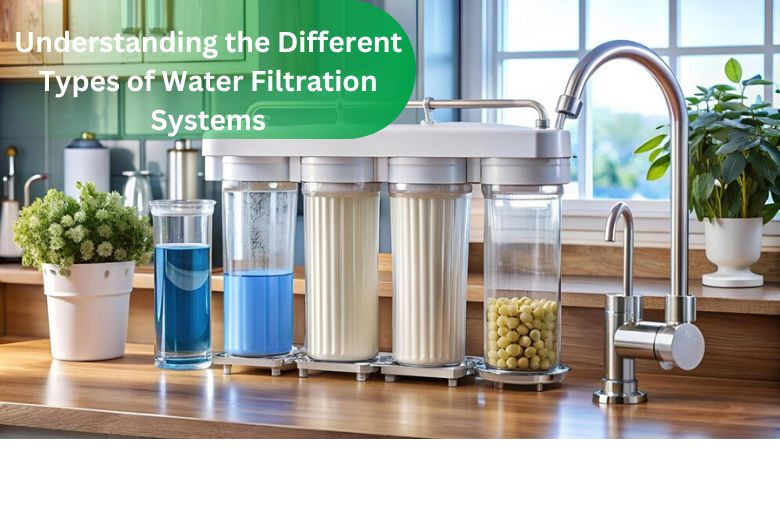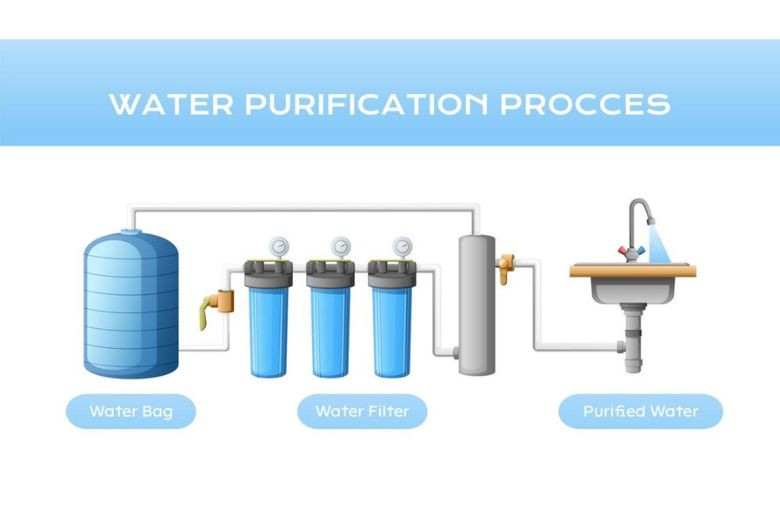Understanding the Different Types of Water Filtration Systems
Posted on August 31, 2024 by Admin

The different kinds of water filtration systems will ensure that you are informed about your drinking water. Several models of water filtration systems have been fabricated for the purification of water from all impurities and contaminants to make it fit for drinking or any other daily purposes. Here's a detailed look at the different types of water filtration systems and how they work.
1. Activated Carbon Filters
One of the most prevalent systems of water filtration in use today in homes is the activated carbon filters. These filters, in the process of working, adsorb impurities and contaminants from water through their content of activated carbon. Since activated carbon is highly porous, it becomes very efficient in removing chlorine, volatile organic compounds, and other chemicals responsible for the taste and odor of water. These filters are also used in pitcher filters, faucet-mount filters, and under-sink systems.
Benefits:
Enhances Taste and Odor
Chlorine and Organic Chemicals removed
Cheap and replaceable
Limitations:
Not all impurities, like heavy metals and microorganisms, are removed
2. Reverse Osmosis Systems
Basically, reverse osmosis systems stand in high regard for the caliber of water filtration. This involves the use of a semi-permeable membrane to rid a wide spectrum of impurities from water. Through the process, pressure is applied to the water for it to pass through a membrane, filtering impurities such as dissolved salts, metals, and microorganisms. The systems usually have multi-stages, coupled with pre-filters and post-filters for thorough purification.
Benefits:
Broad-spectrum contaminant removal
High-quality, crystal pure water
Effective for both domestic and commercial purposes
Limitations:
High maintenance and setup cost
Wastes a certain amount of water in the course of its purification

3. Ultraviolet Water Purifiers
The ultraviolet water purifier kills or inactivates microorganisms, primarily bacteria, viruses, and protozoa. In this procedure, the above-mentioned microorganisms get killed because of UV light; hence, it is very good at disinfecting water. Mostly, it is used as the final step of multiscreen filtration systems so that any remaining microorganisms are killed off. Mostly, it is used as a final step in multi-stages of filtration systems so that any remaining microorganisms get killed off.
Benefits:
Highly effective against microorganisms.
Does not alter the taste or odour of water.
No use of chemicals in the disinfection process.
Limitations:
Doesn't remove chemicals, heavy metals and particulate matter
Requires frequent replacement of bulb and regular maintenance
4. Distillation Systems
This is how the functioning mechanism of this system involves heating the water to finally become steam and then back again to liquid, whereas the contaminants and impurities are left behind. In this way, wide contaminants are efficiently removed, including but not limited to salts, metals, and microorganisms. The very wide application of the distillation systems is in the production of high-purity water used in laboratories or medical settings, among others.
Benefits:
It can remove a large number of impurities
Very pure water may be produced
Limitations:
Compared with other filters, the process is slow
High energy requirement, hence more expensive in operation
5. Ceramic Filters
Ceramic filters make use of a porous ceramic material to filter impurities and microorganisms from the water. Small pores of the ceramic material retain bacteria, sediments, and other particles. Ceramic filters are generally found in the gravity-fed systems of water filtration and are mostly reported to be very strong and efficient.
Benefits:
Hard-wearing and long-lasting.
Very effective against removing bacteria and sediment.
Minimum maintenance required.
Limitations:
Are not capable of removing chemical contaminants and viruses.
This is a unit that requires periodic cleaning to maintain its performance.
Conclusion
Knowing the available types in water filtration systems will give you an idea of which one to suit your needs, from activated carbon filters and reverse osmosis systems to UV purifiers and ceramic filters all these have their advantages and limitations. That would mean one would want to take into consideration personal water quality concerns and needs in choosing a water filtration system to best suit the provision of clean, safe, high-quality drinking water for oneself and one's family.
Also Read :
How to Address Plumbing Issues in Older Homes
The Benefits of Installing a Recirculating Pump for Hot Water
How to Install and Maintain a Home Water Filtration System
Faqs
-
1. What is the main purpose of water filtration systems?
The mains of the water filtration systems are to remove contaminants and impurities from the water, making it safe and clean for drinking, cooking, and other purposes. The systems help in improving the quality of water by filtering risky substances.
-
2. How does a reverse osmosis system work?
An RO works on the basis of forcing water through a semipermeable membrane that removes dissolved salts, metals, and microorganisms. It includes, most of the time, supplementary steps of filtration for complete purification.
-
3. What are the advantages of using UV water purifiers?
UV purifiers efficiently kill or inactivate the following microorganisms: bacteria, viruses, and protozoa. All this goes on with chemical-free disinfection, without changing the taste or odor of the water.
-
4. How often should I replace filters in my water filtration system?
The replacement frequency will depend on the type of filtration system used and on the usage. For example, the activated carbon filters are replaced every 6-12 months. RO membranes can be used for two to three years. Always follow the recommendations to achieve optimum performance provided by the manufacturer.
-
5. Are ceramic filters good at removing all kinds of contaminants?
The ceramic filters remove bacteria, sediments, and other particles because of the material being porous. They, however, do not remove any chemical contaminants and viruses. They are often used with other filtration methods to provide complete filtration.
Recent Post
- Top Plumbing Service Providers in Arizona, USA
- Top 10 Electrician Service Providers in Alabama, USA
- Top 20 Roof Repair Service Providers in Alabama, USA
- The Role of Roof Insulation in Energy Efficiency: Tips and Tricks
- Understanding Roof Damage from Wildlife and How to Prevent It
- How to Choose the Best Roofing Contractor for Emergency Repairs
- Roofing Maintenance for Historic Homes: Preserving Architectural Integrity
- The Importance of Proper Attic Ventilation for Roof Health
- How to Identify and Prevent Roof Mold and Mildew
- The Best Practices for Removing Snow from Your Roof